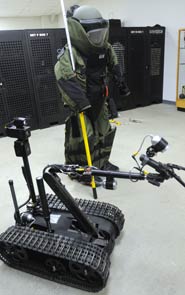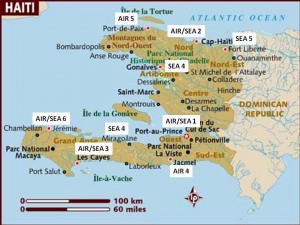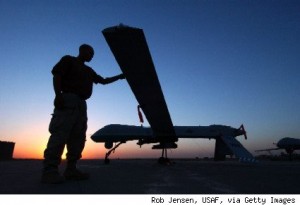U.N. aid chief ‘disappointed' with Haiti earthquake relief efforts
UNITED NATIONS — The United Nations' top humanitarian relief coordinator has scolded his lieutenants for failing to adequately manage the relief effort in Haiti, saying that an uneven response in the month after the devastating Jan. 12 earthquake has undercut confidence in the world body's ability to deliver vital assistance, according to a confidential e-mail.
The criticism from John Holmes, the head of the U.N. Office for the Coordination of Humanitarian Affairs, focuses on the United Nations' sluggish implementation of its humanitarian “cluster strategy,” which assigns key U.N. relief agencies responsibility for coordinating the delivery of basic needs in 12 sectors, including water and shelter.
Haiti: Earthquake Situation Report #22
WASH partners are currently reaching 850,000 people with 5 litres of water a day, covering 83 per cent of the target population. A 75 per cent gap remains, however, in the provision of latrines.
The Health cluster warns that there is a risk of a large-scale outbreak of diarrhea, given the present overcrowding, poor sanitation and lack of effective waste disposal systems in spontaneous settlement sites.
Rain brings more misery to Haiti earthquake survivors
Aid agencies warn of new humanitarian disaster if shelter and sanitation not improved quickly
Study: Quake damage twice value of Haiti economy
A report by three Inter-American Development Bank economists found last month's earthquake to be more devastating than the 2004 Indian Ocean tsunami was for Indonesia, and five times deadlier than the 1972 earthquake that leveled Nicaragua's capital.










